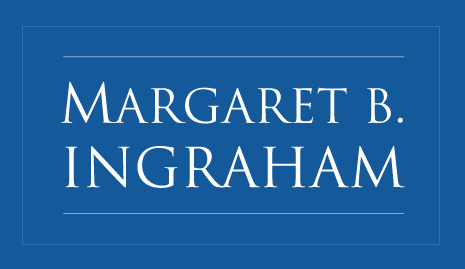Yesterday I awoke with the opening line of Randall Thompson’s great choral work The Testament of Freedom playing in my head. It begins “The God who gave us life gave us liberty at the same time.” The words of that hymn were not Thompson’s. He lifted them from A Summary View of the Rights of British America (1774); and as great composers do, he placed them in a setting that gave them a new life, which both honors and marvelously transcends the original text. From a document that was a decidedly American one, Thompson uncovered and then enshrined in music a universal and enduring truth. Just as the psalmist’s words do – which were also first uttered in a particular circumstance and historical context — these too belong equally to all people and every nation and generation.
Strictly speaking, Thompson’s composition was an “occasional” one. It was specifically dedicated to Thomas Jefferson –who is often called the Father of [American] Liberty — and first performed on the bicentennial of his birth in 1943. Since that premier it is frequently showcased as part of Independence Day celebrations throughout the United States. Surely that association is what brought The Testament of Freedom to my subconscious attention yesterday morning. And that led me to review the full text of the two historical documents that comprise the lyrics of the choral masterpiece. More than leading me to historical American documents, The Testament of Freedom focused me on its opening words and caused me to contemplate the origin of the gift of freedom. “The God who gave us life gave us liberty at the same time.” (italics mine)
That one sentence of the 1774 Testament echoes the foundational concept of Creator-bestowed “inalienable rights” of “life, liberty and the pursuit of happiness” again articulated in the Declaration of Independence. Those were and are words penned in seminal American documents, but the principles and promises they affirm and assert are not the possession of any nation. The three rights claimed in them are only and ultimately the property of the Giver who imparts His liberty to us “at the same time” that He gives life. Thus they belong to all of humanity.
Some might be asking how I dare say liberty belongs to all in a time when we see so many of our sisters and brothers around the globe horribly abused, denied the most fundamental of human rights, tortured, dismembered, imprisoned, snatched from their families daily. Honestly, I ask myself that very same question, knowing that to expect I will have an answer would be either pure arrogance or ignorance or both. The best I can offer of myself in response is my grief in tearful prayers and prayerful tears.
Yet I do still fervently hold to the following truth and regard it as much eternal as self-evident. Freedom is not the product of any inspiring rhetoric, military action or man-made law. Privileges deriving from those are as impermanent and fragile as a butterfly’s wing; they are at all times vulnerable to being restricted, revised, revoked, redefined, rewritten, reassigned or withdrawn by fiat or tyranny, by conquest or assault of an enemy, by prescribed process of a legislature or a court.
But such is not true of the liberty that is indivisible from life. For it is of an entirely different order, the sole property and province of the One Author of Life and Law. That freedom is immutable, because its source is constant and perfect.
This is the life and liberty and law and happiness (blessedness) about which David often spoke. These themes recur throughout his poems in homage to his Creator and Redeemer. They are strikingly evident in Psalms 19 and 119. Let’s look just briefly at one now as we prepare for a more comprehensive study of them in weeks to come.
The title that editors of the ESV assigned to Psalm 19 is “The Law of the Lord is Perfect.” It repeats the psalmist’s words from verse 7, which is the first mention of the word law, but not the first reference to law, in the poem. In fact the whole psalm concerns itself with law, commencing with David’s observations of the natural law that governs all created things and then moving in verse 7 to the man-recorded laws handed down from the Creator. Ponder those concepts. We will leave the fuller investigation of the relationship of life, law, liberty and happiness to Part 2 of The Heart of Liberty.
The mysteries and marvels that The Testament of Freedom commemorates – God-bestowed life and liberty for us, all of us, that cannot be disjoined — are the same that the psalmist celebrated. And the promises of the psalms belong to all people.
Today across the United States we Americans will come together to revel in our freedom through a host of traditional festivities involving family, friends, food, sports, parades and music. I am proud to call this nation home; I am blessed to be its citizen and thankful to join in these observances as we remember the cost of our freedom and the price so many paid to secure it for us.
Tonight we will decorate the sky with fireworks as we recall the turbulent beginnings of our nation and give thanks for our freedom. Across the world, in free places and oppressed, “the heavens [will] declare the glory of God” (Ps. 19:1) as they have above this planet each day and each night since  He first spoke light into being. So they will continue through time. It is glory to behold.
He first spoke light into being. So they will continue through time. It is glory to behold.
But my prayer for our sisters and brothers in other nations, who are not so blessed as we, is that they may soon come to share inalienable rights in their own lands; that they will have occasion then and there to set off their own memorial fireworks; that they too will be able to stand and sing “The God who gave us life gave us liberty.”
Here is a link to the entire text of The Testament of Freedom and documents on which they are based. It is worth the time it takes to read.
Here is a link to Psalm 19 in the ESV.

